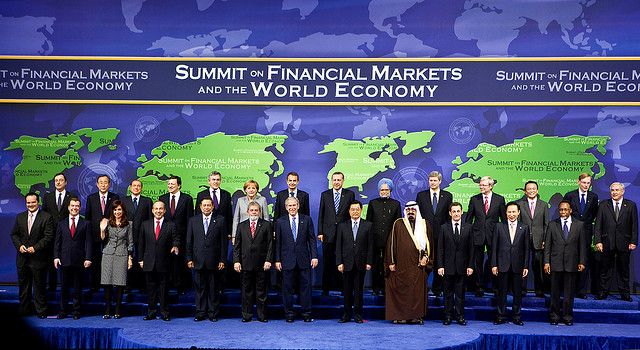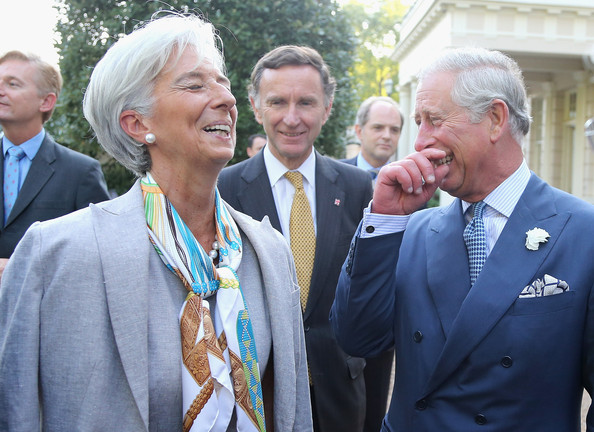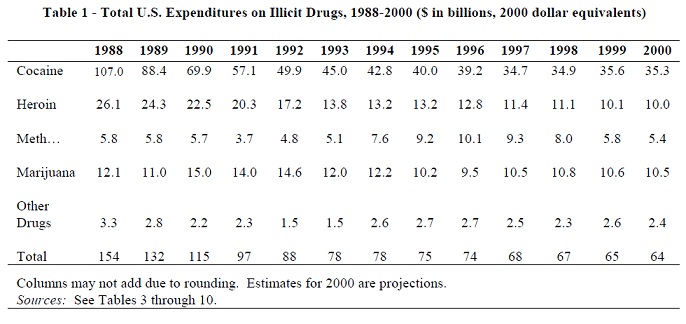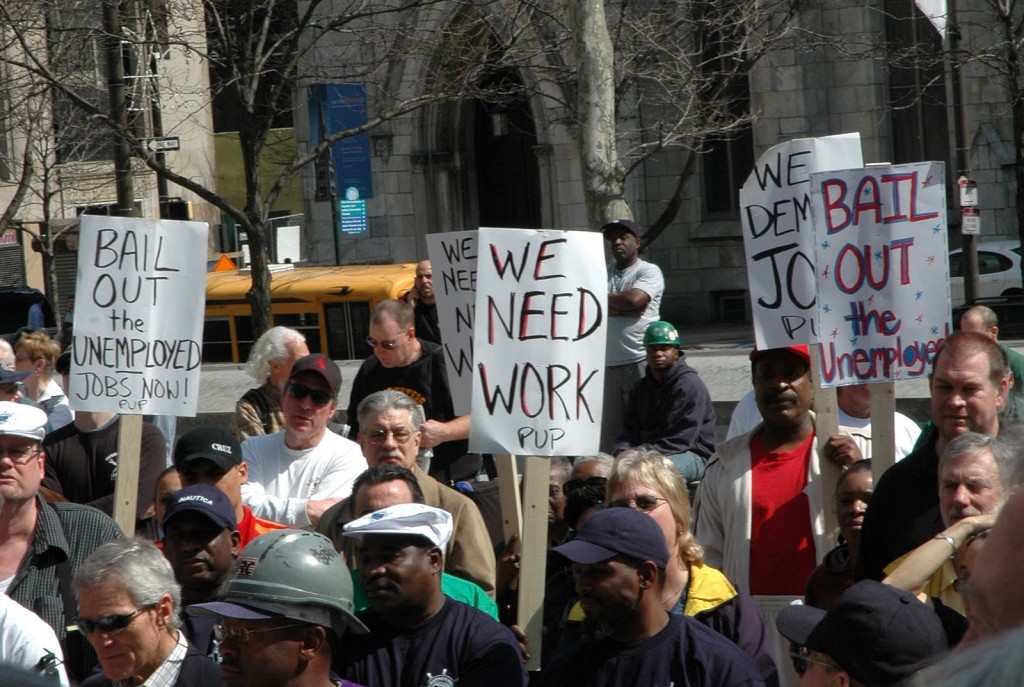Poteconomics — the economics of pot — is a branch of economics designed specifically to account for the complexity of cannabis commerce … and make up for the short shrift given cannabis the commodity by conventional economists and the entities they’re beholden to.
Today, Christmas Day, I sing its praises with religious fervor:
Star of wonder, start of light, cannabis commerce is the shining star twinkling on the economic horizon tonight.
Admittedly, I’ve been tossing the term “poteconomics” around loosely, as if other people naturally know what I’m talking about. My recent appearance on the King of Pot podcast proved otherwise.
I wasn’t satisfied with my answer to the King’s first question, “Can you briefly tell us what a poteconomist is?”
Well, of course I could tell him what a poteconomist is — but not briefly. My answer wasn’t a concise, smart, and persuasive “elevator speech;” it was an unnecessarily long-winded explanation with too much storytelling.
Though the stories were entertaining, in retrospect I wished I’d prepared the elevator speech.
Something like this:
A poteconomist is a cross between an economist and a botanist, self-trained to evaluate the economic firepower of a magical herb. Poteconomists envision cannabis commerce’s pot-ential in a fully legal, regulated landscape and leave no stone unturned in a quest to accurately and believably forecast trends and figures for cannajobs, cannatax, and cannabis’ contribution to GDP [Gross Domestic Product]. Unlike conventional economists, they operate independently from the military industrial complex.
That’s a Christmas confession. Here’s my New Year’s wish:
I wish that the “esteemed economists” of the world would correct their collective oversight of not merely underestimating the economic might of cannabis the commodity, but of acting as if it doesn’t even exist!
I’m not holding my breath.
It’s one thing to see the bong water as half empty; it’s another not to see a single drop in the glass!
We wouldn’t have to turn to poteconomists for cannanalysis [the work that poteconomists do] if the economists of the world did their part.
Apparently, that’s asking too much.
Occasionally, economists with grand titles and impressive degrees plug the Libertarian aspects of the five-leaved superfiber — all drugs should be legal whether or not legality comes with economic benefits. For them, it’s a freedom issue — not a revenue issue.
They’re welcome to their opinion, and god bless them for cashing regular checks from universities and think tanks, but I can assure you that revenue is a top-of-mind issue for people unemployed or underemployed who would love nothing more than to work the marijuana field.
You’d almost think there was a conspiracy (keep reading) forbidding economists from putting number values to the holy triumverate of cannajobs, cannatax, and contribution to GDP. These numbers may as well be kept by high priests and priestesses in dark tombs protected by Egyptian guard cats. How are you supposed to make informed decisions about cannabis issues that may affect you if you don’t really know the numbers? The answer is you can’t.
Which of the following sentences grabs you more?
- In a fully legal, regulated landscape, cannabis commerce could produce a lot of cannajobs and a good amount of cannatax.
- In a fully legal, regulated landscape, cannabis commerce could produce 1 million cannajobs and $67 billion in cannatax — for openers.
The first sentence goes right by you while the second one makes you stop and think, doesn’t it?
As we’ll see, the world’s “esteemed economists” are diametrically opposed to giving cannabis the commodity it’s due — which, in their case, requires cranking some numbers. The fact that so few of them are willing to so is confounding. The world looks to them for guidance … which hasn’t been forthcoming.
Why is it then that when it comes to talking up America’s #1 crop, economists have the blinders on?
This thinkpiece cannalyzes the plausible and the out-there-but-still-plausible explanations.

Masters of the universe at a typical world economics summit. You might recognize the Texan wrangler proudly standing front row center. Who in this crowd is bullish about reintroducing cannabis the commodity to the global economy? Uh …
Origin of the term “poteconomist”
How did the terms “poteconomics” and “poteconomist” find their way into the lexicon of marijuana and money?
The term “poteconomist’ came to me after interviewing Dr. Jon Gettman for Cannabis Commerce in the USA, a cannatax projection encompassing every socioeconomic factor I could think of in 2010. No sooner had I mistakenly lumped in the Virginian who rocked the world with his classic 2007 white paper Lost Taxes and Other Costs of Marijuana Laws with other pot-forecasting economists than he interrupted, “I’m not an economist, I’m only an adjunct professor at Shepherd University in Shepherdstown, West Virginia.”
Rolling with the punches when I wrote it up, I offered, “Since the humble Public Administration professor at relatively unknown Shepherd University somehow manages to correlate supply with demand, perhaps he won’t object to the designation, “poteconomist?”
“Poteconomist” has a nice ring to it. It accurately describe non-economists performing calculations typically performed by economists with better data to model for less controversial commodities like rutabaga, hog bellies, and molybdenum.
The term had staying power. Who better to perform feats of cannanalysis than a poteconomist — a new breed of pot fanboy slash economist fluent in socioeconomics? And what subject would a poteconomist specialize in? Poteconomics, what else?
Why poteconomists arose
By the time I updated the Cannabis Commerce About page last summer, I had zeroed in on a rationale for the rise of the poteconomics caste, to wit:
- To the best of our knowledge, no storied institution of higher learning, from Cambridge, Massachusetts, to Cambridge, Cambridgeshire, prepares Economics majors to analyze the potential profitability of illicit commodities.
- We are unaware of any university which trains economics majors to accurately forecast trends for quadruple-threat commodities. One in particular has the capability to rack up enormous sales as a medicine, a food for man and a feed for cattle, an industrial jack-of-all-trades including biofuel, and a psychoactive recreational “drug.”
- Traditional economists are bewildered by the fact that the illicit, quadruple-threat commodity in question is a simple, yet plentiful herb, which somehow sells for a thousand times the price of oranges at wholesale pricing, [$3,500/lb. to $3.50/lb] and two thousand times the price of oranges at retail pricing. When they try to wrap their heads around that, they’re out of their element — like middle linebackers figure skating.
- Therefore, the cannabis plant’s multifaceted nature cries out for a new breed of specialist … we’ve coined a term for one: poteconomist, and another, for the study itself: poteconomics.
Who becomes a poteconomist?
You don’t take a job aptitude test and learn you’ve got the right stuff to become a poteconomist. It just sort of happens — the same way economists become economists.
A persistent theme running through Sylvia Nasar’s Grand Pursuit: The Story of Economic Genius is that virtually every great economist became one by accident on the way to becoming something else. Joan Robinson was a well-to-do housewife who regularly entertained great economists in her salon when events and circumstances collided.
It’s really no different for poteconomists. No one grows up longing to become one, but something sparks your interest, then away you go.
In my case, it was finding myself suddenly surrounded by 30 dispensaries within a mile radius; by dumb luck I’d moved into ground zero of the retail explosion that mushroomed once medical marijuana became “legal” in Denver. Potactivity like that held endless fascination. Before I knew it, I was pounding out one story after another about economics — a subject that previously interested me about as much as needlepoint. That was some forty articles ago, and the wheels are still spinning.
Do any conventional economists give cannabis commerce its due?
With rare exceptions, when it comes to speaking out or writing about the pot-ential riches of cannabis commerce, a cloak of silence is draped over The World’s Leading Economists.
One rarity is Harvard University’s Dr. Jeffrey Miron. Despite the fact that Jeff Dr. Miron has a PhD in Economics from Harvard and I majored in Free Love at American University, yours truly had the chutzpah to criticize his lackadaisical effort, his methodology, and his white-belt-conservative bottom line.
I’ve also credited him for:
- Being the pioneer who first publicized poteconomics figures
- Continuing to be a first-call quotemeister for prominent media entities
- Acknowledging that cannabis exists and that it’s a commodity — which doesn’t sound like much until you stop and realize how few of his peers do [coming right up]
- Making himself available to Cannabis Commerce when it was just starting out
Today, Christmas Day, and every other day, Miron has religious fervor for Libertarianism; so, when it comes to crunching cannatax numbers, he’s just going through the motions. That said, halfhearted effort is preferable to no effort at all (I’m trying to be generous; seriously low forecasts have detrimental effects on public attitudes. Why should voters or politicians from the state of South Dakota be enthusiastic when its slice of the cannatax pie according to Miron’s forecast could barely fund a community dog run?).
Another exception is The RAND Corporation’s four-headed team which includes, most vocally, it’s own Dr. Rosalie Liccardo Pacula and Dr. Jonathan Caulkins of The Carnegie Mellon Institute (something about RAND and Carnegie Mellon that’s just not kosher is revealed later in this report). It’s hard to love RAND’s haughty attitude, i.e., “Peons like you can’t possibly comprehend our figures, which we often display as pretty yet cryptic Greek calculus symbols; don’t even bother asking us about the arcane process we use to arrive at our figures which no one outside our precious think tank could possibly decipher.”
Putting aside for the moment the tidbit that RAND was originally commissioned by the USAF in the 1950s to justify funding the Strategic Air Command [think Fail Safe] and requisitioning enough Intercontinental Ballistic Missiles to blow the Earth to kingdom come, Pacula and Caulkins churn out their fair share of pot studies. These double as highly-effective cures for insomnia. All kidding aside, producing something even if its open to criticism— what isn’t — is commendable in comparison to the existential nothingness produced by their peers; RAND has my [very grudging] respect for that.
Other economists may be performing useful work that I’m unaware of; if they are, their work is search engine resistant.
By and large, conventional media finds only the pronouncements of Miron and RAND palatable for general dissemination. By no means is it a coincidence that theirs are the lowest forecasts.
Would what used to be referred to as “The Fourth Estate” [the media] conspire to keep cannatax projections low? And, if so, why would it and how does it go about it? Conspiracy theory is addressed later in this report.
Meanwhile, what else is out there?
Milton Friedman and The 500 economists
Shortly after Jeff Miron released his landmark 2005 Budgetary Implications of Marijuana Prohibition, his Libertarian buddy, economics god Milton Friedman, famously enlisted 500 economists to sign “An Open Letter to the President, Congress, Governors, and State Legislatures.” It appeared under the widely-circulated headline, “Milton Friedman, 500 Economists call for end to marijuana prohibition.”
This is one of the few poteconomics stories to ever received widespread media play. Every major news service picked it up.
In his paper, Miron predicted that legalizing marijuana could raise — based on a highly unlikely 50% or greater sin or excise tax — ahem, $6.2 billion in cannatax. The true figure’s easily ten times that, but let’s concentrate on Friedman and the 500 economists.
Apparently, this group found $6.2 billion an impressive enough amount to tie that figure to a justification for legalizing marijuana [Miron also calculated some $40 billion in savings from a cessation of pursuing, prosecuting, and incarcerating marijuana “offenders,” which I’m not disputing; that influenced the letter signers, too].
Hallelujah for plugging “the revenue issue” [the ability to collect cannatax as a core justification for legalization].
However, while I have no problem with 501 economists believing marijuana should be legal as a God-given right, I have to ask: how is it possible that not one of them questioned Miron’s cannatax numbers? Did they actually read his report and check his methodology — which relies exclusively on demand-side data [how much weed people theoretically consume]? 501 economists have never agreed on anything, so it’s doubtful any of them gave Miron’s report any more than a cursory once-over.
Poteconomists are more apt to question Miron’s figures than economists either because they’ve been outlaws themselves, or they hang with outlaws — giving them a greater grasp on the enormous supply of metric tons [about 2200 pounds] potheads and those who palliate ailments with pot consume today and will be demanding more of tomorrow, next week, next month and next year.
Poteconomists are also more inclined to be stoners themselves, or they hang with stoners or have hung with stoners in the past —giving them a leg up on peoples’ real world consumption habits, a.k.a. “empirical data.”
Economists base their projections solely on data sourced directly from the DEA — as if the agency which lost the war on drugs has somehow won the war on statistics.
It’s also illuminating to note that none of the “great metropolitan dailies” that picked up the story questioned the $6.2 billion figure either. Doing that requires a basic knowledge of economics; reporters and their editors would need a crash course in order to ask semi-intelligent questions. That takes effort. Parroting does not, which is why it wins out.
Conversely, poteconomists willingly force-feed themselves a strict diet of supply and demand to make up for the gaps in their knowledge. To match that, economists would have to absorb their own empirical data which generally involves touching a highly subversive substance that’s gooey, gunky, stoney and skunky. That sticky prerequisite eliminates Dr. Miron and RAND.
For grins, I Googled to see what, if anything, Milton Friedman’s 500 economists have contributed to poteconomics literature — or if the one calorie and two seconds it takes to sign a letter is the sum total of all the heavy lifting they’ve performed.
And the results? The one calorie and two seconds it takes to sign a letter is the sum total of all the heavy lifting they’ve performed — and they’ve had since 2005 to take up the pen. It’s safe to say that the 300 Spartans have nothing to fear from the 500 economists in the fierceness department.
I randomly picked twenty economists from the widely-published list and Googled each of their names, followed by the search terms “pot,” “marijuana,” and “cannabis.” Guess what that turned up? Zilch. Zero. Nada. The search engine that transformed the world turned up not a word, not an opinion — much less a juicy report on any aspect of poteconomics from any of them. Nothing.
Milton Friedman might as well have asked 500 cryptozoologists to sign his letter.
If anyone else cares to research the remaining 480 names in case you consider twenty to be an insufficient sampling group, be my guest, you’re welcome to search for needles in haystacks. There’s a convenient “Comments” box at the bottom of this article ready to receive any startling revelations you might uncover.
I also ran a search for Milton Friedman and the same search terms. Suffice it to say that the octagenarian pundit toes the Libertarian party line in quotes like, “The state has no right to tell me what I can put in my mouth or what comes out of my mouth.” His pronouncements about marijuana and money judiciously avoid hard numbers. I’ll leave it at that; the guy was in his 80s at the time … he gets a free pass.
500 economists snapping out of their Rip Van Winkle slumber long enough to note the existence of a link between marijuana and economic viability is noteworthy. But consider this: what all those economists banding together to sign this letter really accomplished was setting in stone the how-low-can-you-go number of $6.2 billion.
Maybe that was the whole idea?
More signatures, less heavy lifting
More recently, Denver weekly Westword wrote, “The folks behind [Colorado] Amendment 64, the Regulate Marijuana Like Alcohol Act, released a letter with an academic flavor. It features the signatures of 100-plus professors who back the measure, including high-profile types like the University of Chicago’s Thomas Ginsberg and several instructors from CSU [like Stephen Mumme]. The letter promotes a “sensible, evidence-based approach to marijuana policy.”
Ignoring for the moment that a one-ounce limit is sickeningly sensible and the fact that it defies logic and belief that 100 college professors failed to notice that state-by-state incremental “progress” is really just more grovelization not legalization, let’s take a closer look.
What jumps out is that Ginsberg’s a law professor and Mumme’s a poli-sci expert. In other words, neither is an economist. They don’t count. However, plenty of Economics professors appear on the list.
Once again, I chose 20 economists at random in an attempt to unearth any contributions they’d made to the literature of poteconomics, carefully typing their names followed by the search terms “pot,” “cannabis,” and “marijuana” into Google’s omnipresent input box.
And the results?
Well, Marc Bilodeaux, an Associate Professor of Economics from Indiana University, actually had a pot quote to his credit: “There is a rare consensus among economists of every political persuasion that legalization plus taxation would be a policy that could work.” What he bases that statement on … we’d have to ask him, cause apparently he hasn’t written a word more which Google can locate online.
I was also able to attribute an actual quote to Professor Alexandre Padilla of Metro State University here in Denver: “This is the tricky thing, a lot of banks refuse owners of medical dispensaries to open accounts because they’re afraid the feds will close their offices because they are violating federal law.” While that’s true, it tells us nothing at all about the cannabis plant’s pot-ential economic firepower.
And the rest of this crowd, including a “Professor Emeritus” from Emory University? Nothing … zilch … nada.
The disinclination of economists to write anything longer than their signatures about the canniverse explains why poteconomists arose from the primordial muck.

The Ludwig von Mises Supporters Summit held in Vienna, Austria. Attendees are waiting for the same artist who painted the frescos on the ceiling to draw cannabis leaves on the whiteboard.
A real howler from 300 more economists
From the NORML website, April 2012:
“Over 300 economists have signed on to an open letter to the President, Congress, Governors, and State Legislators asking them to allow this “country to commence an open and honest debate about marijuana prohibition.” The petition states that the undersigned “believe such a debate will favor a regime in which marijuana is legal but taxed and regulated like other goods.”
Sounds kind of promising. Anything new or different here?
“We, the undersigned, call your attention to the attached report by Professor Jeffrey A. Miron, The Budgetary Implications of Marijuana Prohibition. The report shows that marijuana legalization — replacing prohibition with a system of taxation and regulation — would save $7.7 billion per year in state and federal expenditures on prohibition enforcement and produce tax revenues of at least $2.4 billion annually if marijuana were taxed like most consumer goods. If, however, marijuana were taxed similarly to alcohol or tobacco, it might generate as much as $6.2 billion annually.”
Oh, no, not that again! In 2012, they’re still dredging up a Libertarian’s figures from 2005 which rely on an ONDCP [Office of National Drug Control Policy] chart from the year 2000 and the imposition of a 50% sin tax!
Miron’s figures were limbo low in 2005 and they’re laughably low now after three years of measurable retail hysteria in The Mile High City. Under pressure from Cannabis Commerce and other prognosticators, the patron saint of poteconomics tripled his cannatax forecast to $18 billion in 2010 as reported in The New York Times — which none of these 300 nitwits or NORML even noticed!
Cannanalysis in a syllable: Gag! I’m giving Google a rest:
300 Komodo dragons could tell us more than these nincompoops about the economic implications of the magical herb.
Publish or perish? Perish the thought that the index of your economics bestseller contains the words pot, cannabis, or marijuana!
Searching for a shred of evidence that the Friedman 500, the Ginsburg 100, or the NORML 300 acknowledge that the nation’s #1 cash crop has any more economic firepower than a BB gun was unrewarding to say the least — downright disillusioning is more like it.
Google, information storehouse of the present and the future, was basically stumped.
Surely the information repository of the past — The Denver Public Library’s extensive Economics [the 3300s] section — boasts volumes of learned poteconomics discourse we could add to our database?
The best and brightest economics minds, who earned book advances from prestigious publishing houses in the face of tremendous competition, couldn’t possibly overlook the fact our nation has shown enthusiasm for the magical weed to the tune of over $100 billion a year, could they? After all, when economists take up the pen, you’d think a commodity as promising as cannabis must factor profoundly in their brilliantly posited proposals for fixing our floundering economy, right?
Then surely the indexes of the following titles must contain multiple entries for the keywords “pot,” “marijuana,” or “cannabis.”
Call me a cockeyed optimist, but I felt like I’d be fishing in a well-stocked pond.
Looking for works from 2008 on when dispensaries started appearing, here’s what I caught instead:
- Econopower, 2008, by Mark Skouser: its tag is, “How a new generation of economists is transforming the world.” From the jacket copy: “Skouser reveals how economists have gone beyond their theories in the real world by running businesses, consulting companies, and taking positions in government.” That conjures up visions of the RAND corporation’s Rosalie Liccardo Pacula trimming buds in her own woman-owned dispensary. Sorry, that was a creative thought. These may be verbotten in literary economics.
- Rebooting the American Dream, 2010, by Thom Hartman: apparently the “h” in Thom doesn’t stand for herb. Too bad. Unfortunately, his book offers nothing earthshattering along the lines of, say, an imagining of a shift from printing paper money propped up by nothing to the adoption of a universal hemp standard. Cannatax, cannajobs, contribution to GDP — none of it comes into play. Living in the land of 400 dispensaries [Denver], I’d never know that cannabis was absent from the American dream. I kinda thought it represents the best part of the American dream. Perhaps I’ve been hallucinating the retail explosion erupting all around me? I’m pinching myself to make sure.
- The State of the Working American, 2009, by Laurence Mishel and Jared Bernstein: put out by The Economic Policy Institute — an “institute” always sounds more authoritative and more evolved than a mere company. Called “A truly comprehensive and useful book” by William Wolman — no less than Chief Economist for CNBC. You might suspect that converting all those pot outlaws to official workers paying Federal Income Tax might have crossed the brain screen of at least one of the authors, the alliteratively named William Wolman, or The Economic Policy Institute itself. Nope. America needs more jobs and cannabiz has already provided boatloads of them; nonetheless, this book doesn’t even entertain the remote possibility that unshackling cannabis commerce could provide millions of them. Grrrrrrrrrrr.
- The Irrational Economist, 2010, Erwin Michel Kerjan and Paul Slovi. The title couldn’t be any more promising, could it? But does it contain any startling thought or theories? Yeah: “We should think more clearly about policy decisions.” Huh? That’s really going out on a limb. Hopefully the authors’ loved ones set them up with a vaporizer and an eighth of Grape Ape this Xmas to get the creative juices flowing.
- The Genius of the Beast, 2010, by Howard Bloom: “a radical re-vision of capitalism.” How radical are we talking about? Apparently not radical enough to mention the unmentionable fiber in its many permutations once.
- Boomerang, 2011, by Michael Lewis: The biggest disappointment of the lot. Lewis is a guy who can actually think and write, someone who unquestionably has his finger on the pulse of the nation. He’s penned a string of bestsellers and cinematic blockbusters. Lewis is adept at rooting out hypocrisy in all areas of life — and milking the mirth for all its worth. Boomerang does a great job of recounting Lewis’ travels in “the new third world” [read every debt-burdened nation]. Just one problem: you’d naturally assume pot’s savior possibilities might have occurred to a nimble economic mind like Lewis’. Wrong again. Are you telling me weed can’t grow on the Greek Islands? That Germany can’t accommodate industrial grows? Or that the emerald isle of Ireland couldn’t get by with a few less sheep and a few more weed fields? Hello? Earth to Michael?

Money, grass, bestseller: how many of his own hints does the usually brilliant Michael Lewis need to train his sights on poteconomics?
The failure of Obama’s Chief Economist Advisers to acknowledge what cannabis commerce could do for job creation, taxation, and GDP
Not everyone knows that President Obama has a Chief Economic Adviser. Anyone know his name without looking it up? What if I offer a free quarter oz. to anyone who can name him? No one? An admission: I couldn’t have told you his name either.
The Chief Economist of the United States is Gene Sperling. As you must already suspect, the sum total of his strategies, recommendations, and innovations for exploiting the tremendous pot-ential of pot/marijuana/cannabis add up to the now familiar zero/nada/zilch.
That’s par for the course: Sperling is Obama’s third Chief Economic Adviser in two years. His predecessors, Austan Goolsbee and Alan Krueger, kept the slate clean, too — nary a searchable syllable between them on the ghost crop with sales topping $100 billion a year could be unearthed.
What sense can a poteconomist make out of that? I’ll take a crack at it:
For everyone ga-ga over the recent passage of recreational marijuana bills in two states, and Obama’s comforting-sounding statement that he has “bigger fish to fry” than recreational users, well, excuse me if I’m not exactly taking that to the bank. What would I take to the bank? More specifically, at what point would I greenlight pot-tential investors who can’t afford to be wiped out by the whims of US Attorneys?
When either President Obama or his Chief Economic Adviser du jour actually says something instructive about the economic viability of cannabis the commodity as a significant contributor to job creation, taxation, and Gross Domestic Product, then, and only then, can it finally be said that the Obama Administration has taken cannabis reform seriously.
When the Chief Economic Adviser of “The Greatest Nation on Earth” steadfastly refuses to acknowledge the existence of a supersubstance ready, willing, and able to add millions of jobs, untold billions worth of cannatax, and eye-popping contributions to GDP as it gallops to the rescue of a bludgeoned economy … poteconomists arise to trumpet the good word.
Unmentionable
American TV is like a toaster, you press a button, and the same thing pops out. —Alfred Hitchcock
CNBC cable mainstay Mad Money has been manna from heaven for any number of business and economics junkies. My 92-year-old dad, Henry Kohn, is one of them. I’ve wiled away many an hour with dear old dad pretending to be engaged as host Jim Cramer and guest heads yak about every conceivable way to stimulate a moribund economy under the sun … every way except … you know … the most promising one, King Cannabis.
How is it that not one CNBC talking head has had the cojones to prescribe marijuana as medicine for an ailing economy? For that matter, how is it that so many people who went to business school, took economics classes, and earn a living as business writers can go down their checklists for economic saviors and come up empty? That’s like refusing to acknowledge that Earth has a moon.
I’m stumped why a perfectly capable economic savior which is already traded more than any crop is unmentionable on networks which regularly trot out talking-head economists like CNBC.
To be fair, CNBC produced a series called Marijuana and Money which agreed with Cannabis Commerce that annual sales of marijuana in the US may exceed $100 billion. The series was active when it first aired in 2010, less so in 2011, and remains very quiet in 2012 — although short blog posts appear online.
Strangely, CNBC was all over marijuana and money when MMJ retail sales were just starting to take off; once sales reached a fever pitch, the network whispered the sounds of silence. Why the eerie radio silence?
It’s certainly not just CNBC. Media conglomerates dutifully cover results of statewide medical marijuana and regulate-like-alcohol elections — every one of which keeps federal prohibition intact thereby tying a symbolic tourniquet around cannabis commerce. They’ll run the occasional feature about bold and determined potentrepreneurs out to strike gold on the local or state levels. It’s reporting about cannabis’ economic firepower as a force to be reckoned with on the national level that’s taboo.
I’m still waiting to read one newspaper story which notes that statewide marijuana initiatives limit cannabiz to a fraction of what it would be if prohibition was vaporized.
That begs the question: who’s controlling the flow of information? The government doesn’t control newspapers and TV … or does it?
I have a feeling that if Jesse Ventura wrote this article, we would have already heard his familiar refrain, “I think we have a conspiracy.”
What sort of conspiracy against speaking up for cannabis’ tremendous economic upside could there possibly be?
I’d have to be insane to explore conspiracy theory as explanation for why cannabis commerce is unmentionable — wouldn’t I?
That’s one possibility.
Another is that global prohibition itself is insane, and it takes conspiracy theorists to unravel the strands of insanity.
It’s worth pondering whether a global conspiracy like that has already been unraveled.
If so, what could it be?
We’re almost there. There’s just one order of business left to take care of.
To appreciate the enormity of an international pot conspiracy, let’s quickly beam into the wild and wacky world of Global Economic Summits, where those ubermen [and women] with the titles, the egos, and the schmoozeability to rise to the highest levels of power gather together to plot the economic destiny of The Third Planet From The Sun.
The wild and wacky world of economics summits

A gala dinner at the Women’s APEC [Asian Pacific Economic Conference] in Shanghai. Pot brownies weren’t served, but the lighting designer’s likely a stoner.

Unemployment in Spain has climbed to 21% and the international banking community had a lot to do with it; that’s the point made abundantly clear by these rather fetching unemployed Barcelonans. Their lives behind the barricade are considerably less privileged than the lifestyles led by the women pictured at the lavish APEC Summit.
Economics summits are held on every continent. The economic elite, including …
- The International Money Fund
- The World Bank
- APEC [Asian Pacific Economic Council]
- G20, a group of finance ministers and central bank governors from 20 major economies: 19 countries plus the European Union.
- G8, a forum for the governments of eight of the world’s largest economies
… to name just a few, sure know how to throw a clambake.
Wacky as they are, it’s a wonder these economic summits haven’t reached out to a huge, powerful [although it acts meek as mice], disfranchised group familiar with the oeuvre: “stoners” interested in and invested in cannabis futures. It’s not going to happen. At these meetings, cannabis is less welcome than plutonium. Attendees can think of a purpose for plutonium. They think about cannabis not at all, or, if it crosses their radar screens, it’s that subversive substance all those unwashed plebes screaming through bullhorns at them are smoking.
So, yeah, there’s quite a collision between haves and have-nots going on at world economic summits, producing a phantasmagoric atmosphere you’ve got to see to believe. Let’s take a quick peek:

India Economic Summit 2011: this one is red hot as economics summit go. Executive summary: tantra’s a go, ganja’s a no-no.
That qualifies as wild. In case you feel shortchanged for wacky:
And another — I’m sure you’re getting the gist:
Do you think the splashy economic summits pictured in this fun-filled section would ever nominate cannabis the commodity for entrée into the ultra-exclusive club dominated by petrochemical interests? Don’t think too hard. You instinctively know the answer.
The basic equation is fossil fuels = world dominance; the world’s most useful substance which oh-by-the-way is infinitely replenishable = world doormat.
Wealth accrued from fossil fuels looks something like this:
Although cannabis is the world’s #1 crop, the economic elite treats it as if it’s no more tangible than deep space.
“Sitting on top of the world” describes G8’s position of preeminence.

This circular conference room at an alpine G8 summit held in L’Aquila, Italy makes interior designers hired by James Bond villains green with envy.
Some job-seeking Earthlings — out on the street looking for hand-outs when they could be gainfully employed transplanting cuttings from mother plants at industrial grow facilities or testing the effectiveness of THC against tumors in labs — appear somewhat less self-assured and a trifle more dressed down than G8 dignitaries in their day-to-day existence:
Many of them tend to get a wee bit agitated when those who would control their economic destinies …
… gather at G20 conferences to script a future which doesn’t include them or the miraculous plant that could put them back to work. They may mask their displeasure.
Not everyone is thrilled when G20 summits are held at nearby luxury resorts. Signs of, shall we say, “friction” have been observed:
For the crème de la crème, that’s just a minor annoyance.

The International Monetary Fund’s Chairwoman Christine Lagarde laughs at one of Bonnie Prince Charles’ bawdy tales. Stop with the cougar jokes already!
Leave it to The London Mail to nail the escalating tension between haves and have-nots in its frolicsome feature, “G20 summit: £530-a-night suites, his ’n’ hers bathtubs and a ‘pillow menu’ await the world’s leading finance chiefs:”
“Next week will see the world’s financial leaders flown in by helicopter to a ‘total exclusion zone’ of road blocks, CCTV cameras and razor-wire fences designed to keep out the assorted anarchists, environmentalists and anti-globalisation campaigners planning ‘direct action’ and violence which has marred previous meetings.”
Suppose any “assorted anarchists, environmentalists, and anti-globalisation campaigners” have noted a link between the “globalists” they despise and worldwide prohibition?
Possibly — though it safe to say that’s not a major priority. Connecting the dots, if indeed they can be connected, calls for a specialist who isn’t entirely unfamiliar with the lunatic fringe: a poteconomist.
The stone-cold shunning cananabis the commodity suffers at economic summits unrolls a red-carpet runway to the most controversial subject matter Cannabis Commerce has ever explored.
Poteconomics and Conspiracy Theory
There’s only one exit left on this lonesome highway.
I’m hesitant to stir conspiracy theories à la Jesse Ventura and Alex Jones into the pot here at Cannabis Commerce; they may be too radioactive for most people to handle. I’m new to them myself. I’m also naturally skeptical, so I’m not completely sold — but the pitch is tempting.
Theories advanced for events like 911 are simply more plausible than the hard-to-swallow accounts offered by a government still propa-ganja-izing that pot, the most healing substance in the pharmacopeia, is a dangerous substance which must be “controlled” more stringently than any other. Does The Controlled Substances Act ring a bell?
Ding!
One of the many reasons why marijuana remains a controlled substance is that the US government unquestionably covered up the findings of studies it commissioned which proved beyond a shadow of a doubt the efficacy of marijuana as a medicine and its relative harmlessness as a mild euphoriant.

Conspiracy theories and theorists like Governor Ventura are a little out there; that said, I can’t think of anything more alien than global prohibition.
I don’t really know if the USAF is housing aliens in Area 51, and I don’t really care, but I don’t have to be convinced that the US government not only lies to us regularly about pot, but it conspires to keep it away from us and hogties whatever transactions we somehow manage to conduct. I’m already there.
Our government’s pot conspiracy has kept the magical weed a political prisoner for 80 years — something which concerns me a great deal. Eighty years in the hole is conspiracy enough to pique my interest.
When governments become all about control and concoct conspiracies to justify authoritarian measures like marijuana prohibition, awake and aware citizens become all about conspiracy theory. They come out of the woodwork and go into overdrive, combing through files, digging through transcripts, rooting around for clues.
Running a pot conspiracy, lying about it for 80 years, and demonizing an innocent plant are practices hardly confined to the government of the United State. It has allies aplenty. Just about every government in “the civilized world” replicates the prohibitive standard set by the United States.
D’ya think the DEA presence in over 70 countries has anything to do with that?
Here in “The Homeland,” where in the aftermath of 911 trading freedom for security has become a national fixation, evidence keeps piling up that an unseen entity is steering President Obama and his administration onto an increasingly authoritarian course. Alex Jones’ The Obama Deception provides example after example — in one irrefutable video clip after another.
As it turns out, Mssrs Ventura and Jones have been examining the freedom for security exchange from every conceivable angle since the Bush II administration.
While neither Ventura’s TV series Conspiracy Theory nor Jones’ documentaries address a pot conspiracy specifically, it’s apparent that their response to the question, “could there be one or more organizations that control Presidents of the United States and their Chief Economic Advisers” would be a resounding, “Yes.”
Ventura and Jones have carved out media careers outing them and naming names.
A caveat:
- I’ll reiterate that I haven’t investigated their investigations.
- I’m not prepared to state with 100% certainty that the conspiracy theories they’ve advanced are true beyond a shadow of a doubt.
- I will say their work provides plenty of gristle for inquiring minds to gnaw on.
For the record, The Obama Conspiracy has received over 13 million YouTube views [Jones claims 35 million views altogether including views on his websites]; Jones’ TerrorStorm has gone over a million on YouTube alone, and his Endgame is over 3 million and climbing on YouTube alone.
Conspiracy Theory has uncountable views; in addition to its popularity on YouTube, three years of episodes appeared on broadcast TV.
In other words:
Interest and belief in conspiracy theories resonates strongly with John Q. Public — not just a handful of survivalist wackos in the backwoods.
One prominent “puppetmaster” that Ventura and Jones have identified is The Bilderberg Group.
The well-rounded club includes a collection of royalty [like Queen Beatrice of The Netherlands], elected officials [including President Obama and Tony Blair], economists [including former US Chief Economic Adviser Austan Goolsby], and various captains of industry [David Rockefeller and James A Johnson, director of Goldman Sachs]. Between 80 and 110 persons are invited to their annual meetings. They communicate in person, taking over entire hotels.
There’s been considerable interest in obtaining the list of invitees, which watchdog groups have managed to produce with a reasonable degree of accuracy.
Why is this report concerned with the Bilderberg guest list?
Remember the team I told you about earlier that old guard media often turns to on the blue moons it asks poteconomics questions — Rosalie Liccardo Pacula from the RAND Corporation and Jonathan Caulkins from Carnegie Mellon Institute? Daniel Estulin’s 2005 bestseller, The Bilderberg Group, uncovered ties between the RAND Corporation and the globalist foundation, to wit:
“The interlocking leadership between the trustees at RAND, and the Ford, Rockefeller, and Carnegie foundations is a classic case of Bilderberg modus operandi.” —Daniel Estulin
Why should you care?

The “New World Order” may or may not be anything more than conspiracy theory. This crowd makes its feelings known that the nightmare is all too real.
The aim of The Bilderberg Group — according to Ventura and Jones — is no less than total world domination … by way of creating a “New World Order” … which erases national boundaries seen as stumbling blocks on the way to a grand takeover. The European Union is step one. The North American Union is on deck.
Chillingly, The New World Order as described comes with a Eugenics [the science of mass murder] agenda for reducing 7 billion relatively-free Earthlings to 500 million serfs kept around to provide for the specific needs of the llluminati.
That’s why.
Ventura and Jones feel your disinterest, disengagement and disbelief paves the way for the “globalists” to reign supreme.
While space prohibits discussing every possible globalist intention, one item conspicuously absent from The New World Order’s to-do list is legalizing cannabis for the financial gain or recreational amusement of the masses. The New World Order is not recruiting artistes and poets.
That may come as a disappointment to those of you wishing and hoping that the world’s governments will “do the right thing” and legalize pot without being forced to do so by nonviolent confrontation.
Check out Endgame — if you dare. Don’t say I didn’t warn you that after seeing it you may get the queasy feeling that you know too much.
While I haven’t researched the hell out of The Bilderberg Group, The New World Order, Eugenics, Alex Jones, and so on … let’s just say that the hypothesis Jones lays out in Endgame is intriguing as hell. If it doesn’t prove to be accurate, it’s fiction that ranks up there with The War of the Worlds, Brave New World and 1984. The ending gets really out there. You will pray to your gods that it’s fiction.
Most importantly for our purposes, Endgame and Conspiracy Theory provide a virtual toolbox to reconstruct exactly how prohibition was built, sold and sustained [coming right up]. I didn’t know Jones had it in him; I gave How Weed Won The West, an oft-viewed pot doc in which he’s featured prominently, a thumbs-down review.
After slogging through it, I had Jones pegged as a hysterical blowhard. And I would have kept tuning him out if he hadn’t started turning up on Conspiracy Theory, one of the few TV shows I’ll watch. IMHO, it’s Governor Ventura’s greatest performance yet.
There’s no denying that Governor Ventura gets some of his hottest tips from none other than Alex Jones. The tightly-wound Texan has insinuated himself onto the investigative team.
Those appearances ultimately drew me to Endgame. The research is extensive. The video clips are profuse and apropos. The passion is palpable. If a quarter of it is true, the guy deserves a statue on the Capitol Mall.

Alex Jones is definitely intense. Going after the forces he’s convinced have already laid the groundwork for world domination takes buckets full of bile.
Before Endgame, there was TerrorState. TerrorState is a lot less out-there than Endgame. There is way less theory; in its stead, Jones presents a steady parade of conspiracies that have either been declassified by the CIA or have been admitted to by government insiders. One which stands out — and harkens back to our earlier question about who controls the media — is the revelation that the same US government which conspires to keep a good herb down spends billions of dollars purchasing spin control from media conglomerates.
What does that buy? Silence. No one ever sees, hears or reads about cannabis commerce’s tremendous upside. And most people are still dependent on newspapers, radio, and TV for news which they presume to be true because it appears in print, on the airwaves, and on their screens. If it’s not there, it doesn’t exist.
According to Jones, the conspiracy runs a little deeper: he asserts that the owners of the New York Times and The Washington Post have attended Bilderberg Group meetings. While inferring that The Bilderberg Group controls all media may be a stretch, at the very least it exerts considerable influence.
Conspiracy theory can’t quite wrap the root causes for the origin and preservation of international cannabis prohibition into a neat package tied up with ribbons and bows; but it opens pathways for a stronger understanding.
Connecting conspiracy theory to economists mum on pot
Conventional explanations fail to account for the unfathomable indifference to cannabis commerce displayed by economists and governments. Could economists be in cahoots with government to maintain the status quo … a doomsday scenario for cannabis commerce?
You tell me.
Need a little more to go on? Let’s connect the dots:
- Cannabis is a subversive substance. It’s a subversive substance because it encourages peaceful feelings, brotherhood, and open-mindedness — three things that need to be done away with pronto in a totalitarian New World Order. Therefore cannabis commerce is squashed at every turn.
- One convenient way to squash subversive substances is by branding them “dangerous drugs.” Check! Cannabis officially branded as a Schedule One dangerous drug commoners can’t be entrusted with provides a built-in excuse for the economic elite to ignore it. This may be the first time anyone has called them out on it.
- Another way to keep cannabis under the thumb of a globalist regime is by pretending it doesn’t exist or that it’s economic potential is so minimal, no academic economist or elite economist attending global summits should pay it the slightest heed. Check.
- If what Jones and Ventura tell us about a New World Order is even partially true, said Order hardly concerns itself with providing cannajobs or recreational refreshments for some 6 billion Earthlings who won’t be with us a whole lot longer. No need to wear out the calculators on those sort of projections. Furthermore, pesky clashes between the Mexican government and rival cartels which kill tens of thousands of police, cartel members, and innocents are a positive development from the perspective of a New World Order obsessed with population control; that’s less work for them.
- If what Jones and Ventura tell us about the intentions of a New World Order is even partially true, members of said Order have already banked far more megabucks than they will ever need; therefore raking in even more megabucks via cannabis commerce is meaningless.
- Dwelling on the medicinal properties of cannabis [which, as we hear time and time again, has never killed anyone] is also meaningless for globalists banking on Big Pharma to supply prescription weaponry for the Eugenics master plan laid out in Endgame (which may or may not be overly dramatized). Forced vaccinations are already taking place in some parts of the world including America. No need then for economists to study how cannabis addresses more illnesses more economically and with less side effects than prescription drugs.
- Since The World Bank and The Federal Reserve are essentially secret societies that may be controlled by The Bilderberg Group and guiding lights of a New World Order, who can say if there really is a pressing need to collect cannatax or contribute to the GDP? We may never know how much money the US government has in 2012. Is there really a $16 trillion deficit? It would seem that the public is supposed to believe that’s an accurate figure — though even elected Congressmen can’t look over The Fed’s books. It feels a little dubious, but I don’t know everything. I’m fairly certain that the federal government hasn’t closed one military base yet because they couldn’t afford to keep the lights on and the drones charged.
- Speaking of the Federal Reserve, no Chairman [Alan Greenspan and Ben Bernanke in recent memory] has even weighed in on cannabis commerce’s pot-ential as a revenue generating machine. Au contraire. The Fed’s about as excited by cannabis commerce as it is by all the tax revenue it could collect from the country’s remaining bubble gum machines. When you can print all the money you want — or say you printed it without any accountability — why mess around with grow lights, fertilizer, and dirt? Needless to say, economists all agog over The Fed’s interest rate manipulations aren’t exactly on pins and needles waiting for Ben Bernanke’s pontifications on pot.
When you’re scrambling to sort out why the world’s “esteemed economists” are mum on pot, these type of conspiracy theories — which seem to be intertwined — may not be nearly as extraterrestrial as the globalists’ intentions for Planet Earth.
{Note: 1/4/2013: I’m desperately trying to put this story to bed … but since it stops just short of accusing certain groups of actively carrying out a Eugenics agenda — about the heaviest accusation I could ever make, considering said agenda is a supposition not a fact at this point — in all good conscious I’m compelled to dig deeper. Once again, I’m being upfront that my research is quick and incomplete— and likely to stay that way.
But I can say it appears that many religious right-wingers equate abortion with Eugenics; they also equate favoring assisted death [Dr. Kervorkian] for incapacitated people facing end-of-life decisions with Eugenics [my own dad was so close to death this fall I wouldn’t have minded if there was an option to let him go peacefully — and I’m not into Eugenics], and anytime anyone mentions that the world might be better off without unlimited population growth, they’re associated with Eugenics, and so on. Those are all possible links to a Eugenics agenda, not proven links. Or there could be no connection at all.
Also, the Bilderberg Group is regularly accused of being neo-Nazi; that’s interesting since the majority of its participants are Jewish. That’s more than a little meshugena.
Lastly, it seems many of the sites most locked in on an impending New World Order just happen to be in the business of selling survivalist supplies; there’s no way of knowing whether such sales provide a public service or if they’re preying upon the very fears they create. end note}
As I write this, I’m viewing a possible connection between economists and a New World Order in VHS quality; HD quality is a little ways off yet. But the picture’s coming in clearer and clearer:
- If you want to control the world, you have to control the world’s economy.
- If you want to control the world’s economy, you have to control the world’s economists.
- If you can control the world’s economists, they’ll continue talking up the price of a barrel of oil and clamming up about the price of vial of hash oil.
- When the world’s economists are controlled to the point they virtually never acknowledge the existence of cannabis commerce — much less give it its due as a potent economic force — everyone who looks to them for advice naturally gives cannabis commerce the same short-shrift they do.
- When the world’s economists are controlled to the point there’s no incentive to promote cannabis commerce, and the public is unaware how much it could contribute to personal, company, local, state, national, and planetary finances, poteconomists arise to fill the void.
- One task that falls to poteconomists is explaining why the world’s economists could be controlled by globalist conspiracies.
The wild card
Well … after further exploration, it develops that Bilderberg Group stalwart George Soros appears to be the single biggest contributor to marijuana quasi-legalization in America!
It’s safe to say that no one outside the group knows for sure whether Soros shares his pro-pot views with other Bilderberg attendees, or their reaction to it if he does.
This interesting to say the least individual holds a BS in Economics from the London School of Economics.
Bucking the odds, Soros talked up the economic potential of cannabis in an op-ed piece for The Wall Street Journal, “Why I Support Legal Marijuana.”
Regulating and taxing marijuana would simultaneously save taxpayers billions of dollars in enforcement and incarceration costs, while providing many billions of dollars in revenue annually. —George Soros
Wow — he actually used the word “revenue.” Unheard of! His choice of the word “many” before “billions” is also heartening; it indicates unlimited upside.
There’s more than enough going on in this article already without investigating Mr. Soros’ beliefs, associations, and motivations; however, I would be remiss if I left out the information that at least one Bilderberg Group member is not only pro-pot, but a) believes in it strongly enough to have bankrolled statewide marijuana initiatives all over the nation; and b) actually writes about pot and the revenue issue.
Anyone with or without faults who possesses an economics degree and writes about generating “many billions of dollars in revenue” is at least an honorary poteconomist in my book.
Talk about a wild card — wouldn’t it be something if global government came with marijuana legalization?!?! There’s just that vexing question of how many of us would be around to enjoy it.
What tangled webs we weave …
Conclusion
Well, there you have it — with rare exceptions duly noted, Earth’s esteemed economists have an incredibly hard time wrapping their heads around cannabis commerce.
- Their educations didn’t prepare them for it.
- Since governments and the media hardly ever gush about cannabis commerce being a bonanza, and the topic is taboo at the highest-level world economic summits; it’s no wonder most of them clam up about it. Which is no excuse for almost all of them clamming up about it.
- Thanks in no small part to economists looking the other away, cannabis is a ghost commodity.
When conventional economists ignore the pot-ential riches of cannabis commerce, poteconomists arise.
After producing over 40 in-depth thinkpieces about marijuana and money, there’s only one person, idea, movement, initiative or entity I have not been able to systematically pick apart; his name is Jon Gettman, and as we learned earlier, he’s a poteconomist, not an economist. Perhaps that’s why.






















3 comments
John Sergovich says:
Jan 29, 2013
I thought that post was well said. There are just a few things that bothered me. You mentioned Alex Jones. Alex’s job is to feed you a line of crap so as to steer you away from the truth. Google “Alex Jones” and “777” and hear him out. Then google “Fintan Dunne” and “Alex Jones and 777” to understand the lies that he peddles and the manner in which he peddles them.
I feel that you hit the nail on the head when you mentioned petroleum. It’s not a secret that energy security is also a national interest and therefore a matter of national security. I think that is why everyone is tight lipped about cannabis. Imagine what would happen to hemp yields if farmers could choose their own strains and plant seeds that they have harvested themselves. If farmers could grow pot without restrictions, it is possible to forsee hemp sourced ethanol as well as bio-diesel being a more economical and useful source of energy than petroleum. Look at the stock exchanges and the value of our money, and the balance sheets of the banks that fund the giant petrochemical industry. Do you understand what kind of write-off would be involved if people stopped buying gasoline? You’re right about oil and power. If a monk could grow energy on the side of a mountain and feed and house and clothe himself with the same crop, who needs the industrial economies?
I’ve noticed that there seems to be social mores when discussing cannabis. It used to be that you would giggle when someone mentioned it. These days it is about recognizing the terrible diseases that medical marijuana patients suffer from and how we don’t wish to be like them. It is still taboo to claim that pot is good for healthy people too. That would make THC less scary for some and farmers might be tempted to grow more robust strains for better yields, and that is the key to how this all works.
Imagine if farmers could only raise cattle with less than 3% calcium in their bones because we believe that calcium might be bad for you. What kind of cattle could they raise? This is what they’re doing to cannabis. They might allow farmers to grow the insignificant strains but not the robust indica and sativa strains that could compete with petroleum.
I hope you find my comments useful.
Lory Kohn says:
Jan 29, 2013
John, thank you very much for your well-thought-out post filled with great points.
I tried hard to temper my remarks about Alex Jones with a lot of qualifying statements like “if 25% of what he says is true …” and by noting the fact his sponsors are mainly survivalist suppliers which may or may not be a public service. I do feel he raises questions that people should be pondering and that he is very good at finding clips of military industrial complex folks saying some truly scary stuff which people should know about. That said, I do not believe I characterized Jones as a voice of truth above question!
Your comments about industrial hemp’s vast potential as a biofuel are of course dead-on. Standing in its way besides the petrochemical monarchs are the corn biofuels which have captured presence of mind in that arena. It is sad indeed that the Administration is gung-ho for Monsanto products [huge campaign contributors] and prohibits cannabis products.
And I like your image of sustainable farming with the monk on the hillside growing his own energy supply.
Lastly, it’s definitely discomforting hearing politicians say we’re “protecting our interests abroad” to justify their military escapades. Funny, I don’t happen to have any interests in Pakistan, do you or anyone you know?
Paul von Hartmann says:
Jun 23, 2013
A pot economist often called “ganjanomist” is someone who recognizes the historically celebrated, scientifically verifiable, multitude of values in the Cannabis plant, as inherent to continued evolution of the world’s most ancient, sustainable global economic base. Marijuana agriculture manufacture and trade is a multi-billion dollar business — while industrial hemp agriculture, manufacture and trade is a multi-trillion dollar industry.